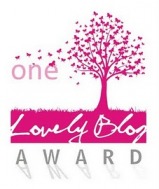A few years after the onset of my primary lateral sclerosis, I set off on a quest to know and to understand how others deal with being diagnosed with a chronic, progressive illness.
While I am not sure why or what exactly I was looking for, what I did find certainly changed my perspective.
I began my research because I was helping to plan a Women’s Retreat here in the Tampa Bay area for a Spastic Paraplegia Foundation event.
There were common issues throughout the research and most of them had to do with how we perceive our lives and ourselves, which I found quite validating. Not only does our entire perception change, but also our perception of the world around us changes.
For many, including me in the early years, this was a lot to adjust to, and often depression and anxiety became a part of the symptoms requiring treatment in addition to the illness.
What I found most notably was that everyone goes through some version of a grieving process. This was mentioned in most of the literature I found.
The grief process included our sense of usefulness, our body image, our sexuality, our self-worth, our old roles at work, in relationships, and the lists went on with much the same themes.
While I certainly did experience most of the stages of grief early in the progression of my illness, I found that I kept having to repeat the process with each new symptom or with each new symptom that was being better managed.
With progressive illnesses, once you get used to a certain functioning level, it changes, so it seemed to me grieving was cyclical, instead of a simple stage process documented by Elizabeth Kubler-Ross so eloquently in her book and by many others since her in their research.
Her stages include denial, anger, bargaining, depression and acceptance. Does that mean you do it once and your done?
That certainly didn’t seem to be the case when grieving the death of my mother, nor did it seem to be many of the folks I knew with chronic illness, nor my experience with this illness.
This sort of cycle also occurs a bit less pronounced as we grow older and is a very natural process. I am not sure why we are so hard on ourselves about it when we need to experience it.
I lost a lot in the first couple of years of my illness. I lost my ability to work, I lost my housing, I lost my dogs for 9 months, I lost my independence, my ability to drive and much more.
I had to redefine who Tawny was outside of my jobs. I was no longer a therapist who worked with the homeless. I wasn’t sure what my role would be with illness and limitations in the mix.
In fact, I didn’t feel like I had much to offer at all anymore. I had a choice whether or not to sink into the darkness I was feeling.
Some days I chose to sink and other days, I chose to figure out a way to move forward into this new version of my life and myself.
The Women’s Retreat took place in 2006, and I had just re-learned to stand and could take some steps on land from months of water therapy. I was able to stand and give the workshops I had signed myself up to give, although I can hardly remember what I talked about now.
What I remember about that time frame is that I was having as much difficulty adjusting to standing up to do things as I had adjusting to doing things from a seated position. I kept bumping my head, actually.
I had been doing things in a seated position for more than three years at that point and had gotten quite good at it. Believe it or not, I had to do some grieving at that juncture as well.
I didn’t expect to have to do any grieving at that point, instead I thought I should just be relishing in the accomplishment that no one thought was possible. I did that too, and I don’t believe the grieving process takes away from a state of gratitude.
For me during that time, I needed to wrap my brain around being ambulatory and then wrap it around being even more functionally ambulatory with the implant of the baclofen pump in early 2007.
I wasn’t so much sad about being out of the wheelchair, as I was simply unsure how to proceed with the new reality.
I proceeded to create an entirely different life because I could. While that sounds good, I also created a one that involved very little of what had been included in my previous one. That included the people.
I would acknowledge my pump and my illness when I had to, but more often, I proceeded to behave as if neither existed.
I knew on some level that I was on borrowed time, so to speak, and that the pump wouldn’t be this effective and the illness would eventually progress, so I decided to live as large as I could.
When I got my dog Duke certified as a therapy dog in 2010 and decided to volunteer back at the Homeless Emergency Project (where I lived for six months in 2004, when I couldn’t work enough hours to keep my house) was when I realized my avoidance of people who knew me then.
I didn’t know I was denying anything until that point, but certainly had some feelings to work through after we started volunteering there, which interestingly enough only two months before the accident jarred my pump out of place.
I am going through yet another cycle of grieving now that is taking me back through some of the issues I have faced before. I believe that with each cycle through, we deal with issues at a different level.
Perhaps this is a deeper level or just a different level that we weren’t able to handle before.
While my shared changes here are pretty dramatic, we all experience changes. We all grapple with them periodically and wonder where to go from here with them.
Perhaps understanding that with both negative and positive changes, we will experience some type of grief process can help to take some of the pressure off to help us through those periods of adjustment.
Perhaps thinking of grief differently can help us to re-evaluate our old beliefs about how we cope with change. How many of us think we should be done already dealing with whatever issues we might be facing?




Please share your thoughts about this post!